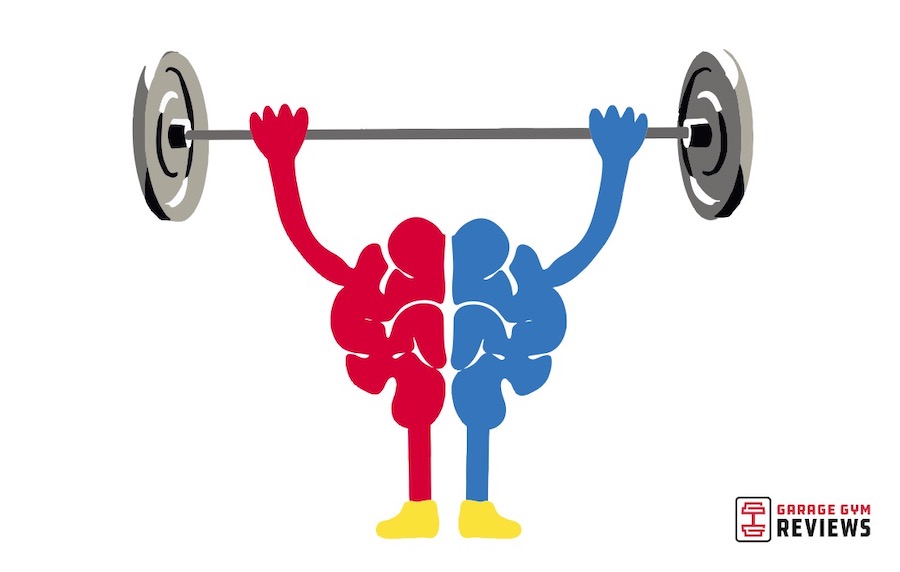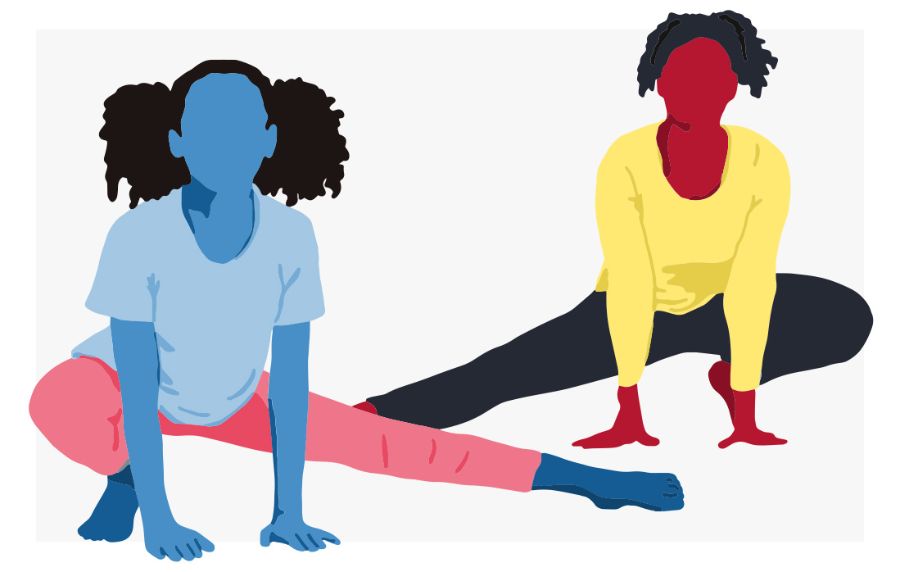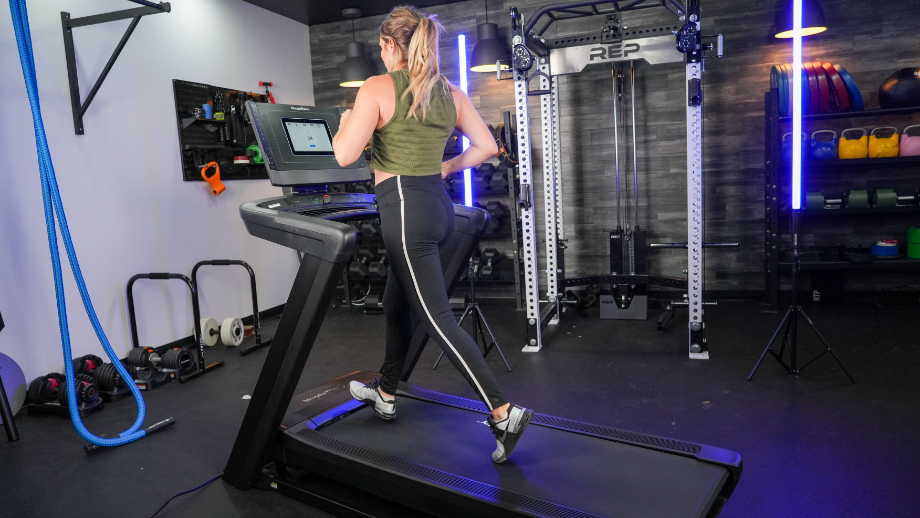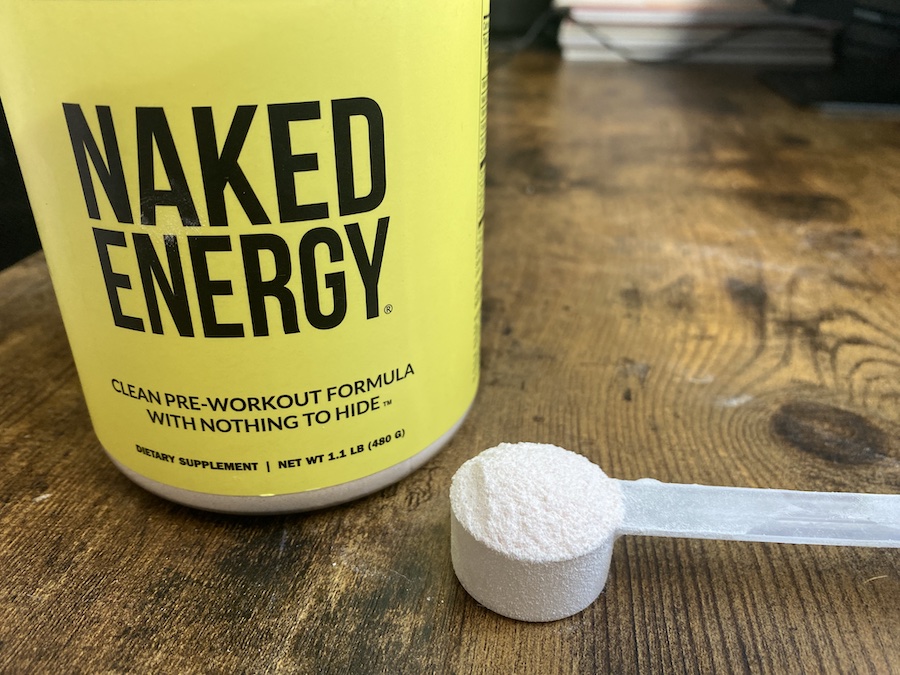Running is a fantastic form of exercise. It has a low barrier to entry; all you need are running shoes and a safe place to jog—no need for an expensive gym membership.
We’ve all heard about runner’s high and that “Running is good for you.” But how? Well, there are numerous health benefits of running to both your physical and mental health, including: living longer, improved brain function, lower risk of cancer, improved mental health, and many more.
So, let’s get into the details.
1. Boost Immunity
The first stop on the well-being express: your immune system. A review of numerous studies by the British Journal of Sports Medicine found an inverse relationship between exercise and illness risk, which means that as you increase exercise, illness risk decreases.
Specifically, they found that after a bout of exercise, there was a temporary increased immunity response. This came in the form of increased circulation of immune cells. Additionally, regular exercise has been found to delay the onset of age-related decline in immune function.
2. Improve Brain Function
Yes, running actually can improve the way your brain works.
One study took an in-depth look at how aerobic exercise impacts brain function. Multiple meta-analyses found that runners showed improved cognitive performance on tasks following a run. Another meta-analysis found improvements in long-term memory after running.
And the best part? Researchers found that the amount of exercise does not have a significant impact on the improvements, so even a little cardiovascular fitness goes a long way.

3. Lower Risk of Cancer
Eat vegetables, wear sunscreen, and go for a run: A 2016 meta-analysis found a 7% lower risk of cancer in people who engaged in leisure time physical activity, including running. Specifically, this analysis looked at the risk associated with 26 different types of cancer and found decreased risk for 13 of them.
4. Lower Risk of Type 2 Diabetes
We know running burns calories and is great for weight loss, and one possible byproduct of that is reducing the risk of diabetes. This study found that incidence of Type 2 diabetes was lower among runners. Researchers also found that more running correlated with even lower incidence of developing diabetes, seeming to indicate that further increases in running would create greater decreases in risk.
5. Lower Blood Pressure
Let’s talk about heart health: One meta-analysis from a systematic review of studies completed in 2019 found that high-intensity interval training (HIIT) and moderate-intensity continuous training (MICT) resulted in similar reductions in high blood pressure in adults 60 and older.
If you’re really concerned about blood pressure, those researchers found that HIIT was better than MICT in reducing blood pressure on a broad scale. In other words, throw in some sprint training to your cardio workouts.
RELATED: HIIT Treadmill Workout
Make running a habit, just like how brushing your teeth is a daily habit
Jacob Penner, certified personal trainer and former track coach
6. Improve Bone Density
Want to ward off osteoporosis by taking care of your bones? A review found that weight-bearing physical activity, such as running, increases bone health better than non-weight-bearing activities, like cycling. This review found that distance runners have better bone mineral density (BMD) when compared to swimmers, cyclists, and triathletes.
Researchers also found that running may be more osteogenic, or bone-forming, if short rest bouts are incorporated, like you see in interval training.
7. Burn Calories, Lose Weight
This may be an obvious benefit, but running is an easy way to burn calories. But how much should you do?
A study found that a combination of 150 minutes per week of moderate exercise or 75 minutes per week of vigorous exercise combined with calorie restriction is key to achieving weight loss. This study also found that people who exercised 200 to 300 minutes per week saw a better weight maintenance than those who exercised 150 minutes per week. To put it simply, that translates to just 8 to 15 minutes more exercise per day.
However, simply completing the recommended exercise will result in improved cardiovascular health. We should be clear that you do not need to lose weight to see positive health outcomes. A 2021 review of studies found that weight loss is not consistently associated with lower mortality risk. Additionally, mortality risk associated with obesity can be reduced or eliminated with high levels of cardiorespiratory fitness.

8. Improve Mental Health
Researchers exploring exercise as a treatment for depression compared using workouts to treat depression compared to no treatment at all. They found that any type of exercise was beneficial. Moreover, the study concluded that exercise provided extra benefits when combined with traditional treatments such as therapy and medication when compared to therapy and medication alone.
9. Sleep Better
Who doesn’t want better shuteye? Turns out, not only does exercise help, but specific amounts of exercise is key. A survey of studies found that exercise is associated with improved sleep quality across many ages and demographics. They also found people who reported exercising three times per week slept better than people that reported exercising only one to two times per week.
10. May Improve Joint Health
Word on the street is that running is high-impact and can compromise joint health. However, researchers suggest otherwise. Running might actually improve your joint health, according to a study that found that the incidence of osteoarthritis is lower in active marathoners than in the general U.S population of similar demographic characteristics.
Of course, if you have joint issues already, it’s best to speak with a physician or running coach before jumping into a running routine.
11. Live Longer
Finally, perhaps the biggest thing: Running can help you live longer. A meta-analysis in the British Journal of Sports Medicine found that running reduced the risk of all causes of mortality when compared with not running. Researchers did not find any significant response to the amount or intensity of running with regards to frequency, duration, and pace, which is fantastic news.
Basically, this means that any amount of running is better than no running. You don’t have to become a marathoner or take up distance running to experience the benefits of running.
A review of studies for a journal focusing on cardiovascular disease found that on average, runners live approximately three years longer than non-runners and have anywhere from 25 to 40% decreased risk of premature mortality. Additionally, running may provide a larger decrease in mortality than other types of physical activity. However, the greatest decrease in mortality was found in people who participated in running and other forms of physical activity, like strength training.
How to Get Started With Running
After reading about all these running benefits, you might be wondering how to get started. Remember, that running is not a replacement for medical care under the supervision of a doctor. You should consult your doctor for medical advice before you start a new exercise routine.
First, set a goal, but pick just one thing; don’t try to improve everything all at once. Your goal could be focused on distance, duration, pace, or frequency, such as running three times per week, or running for 30 minutes without stopping, or running 1 mile. There are lots of free running programs easily accessible online to help you achieve whatever goal you select. You can also find local running clubs for beginners online if you would prefer to run with a group.
Next, start small. You might just go for a run, or a combination of running and walking, two to three times a week for 20 minutes a day. Slowly build from there. If you ramp up too quickly, you put yourself at risk of injury.
We also asked a former track coach and certified personal trainer Jacob Penner, for his advice on starting to run:
“New runners should value frequency and consistency over other qualities of training,” Jacob says. “Make running a habit, just like how brushing your teeth is a daily habit. Those who show up every day will see the most progress and enjoyment. Remember that motivation tends to spike AFTER we begin a task, so having the habit/routine of getting started every day will set you up for success.”
So, just get out there and keep doing it. Don’t get too hung up on distances and time. Remember, even small amounts of running can improve health.
Running Pace Calculator

Calculate Your Running Pace
Enter your stats in any 2 of the fields below to calculate the third.
Benefits of Running FAQs
How much running do I have to do?
Any amount of regular running has multiple benefits to your health. Running is better than no running. If you’re just getting started, aim to run or run-walk for 20 minutes each session, and build from there.
Do I have to run?
No, you do not have to run to reap the benefits of physical activity. Walking has a number of great benefits, as does strength training. There are also many alternatives to running you might enjoy, like cycling, jumping rope, or using an elliptical.
What benefits do you gain from running?
You can achieve general improved cardiovascular health, live longer, improved bone and joint health, and improved mental health.
What does 30 minutes of running do?
Even short bouts of running will improve your brain function, boost your immune system, and improve sleep quality. For many people, running for 30 minutes at a 12-minute-mile pace will burn approximately 300 calories, according to data from Harvard Health.
What are 10 benefits of running?
– Live longer
– Decrease risk of cancer
– Improve Sleep
– Lower rates of arthritis among runners
– Improve mental health
– Boosts immunity
– Improve joint health
– Improve brain function
– Lower blood pressure
– Burn calories







